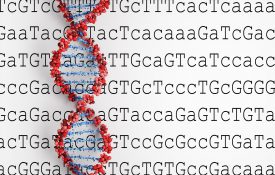-
Coming of Age on the Internet
In the mid-90s, the Internet seemed like a dark place. Indeed, scientific studies from that time were documenting some real risks for teenagers, including fewer close friendships and more tenuous connections with family. It appeared Visit Page
-
Picky Preschoolers: Young Children Prefer Majority Opinion
When we are faced with a decision, and we’re not sure what to do, usually we’ll just go with the majority opinion. When do we begin adopting this strategy of “following the crowd”? In a Visit Page
-

The Effect of Parental Education on the Heritability of Children’s Reading Disability
A twin study suggests a significant interaction between parents’ years of education and the heritability of reading disability. Visit Page
-
Using Challenging Concepts to Learn Promotes Understanding of New Material
It’s a question that confronts parents and teachers everywhere- what is the best method of teaching kids new skills? Is it better for children to learn gradually, starting with easy examples and slowly progressing to Visit Page
-
New Study Explores Social Comparison in Early Childhood
It has been shown (and probably experienced by all of us) that performing worse than our peers on a particular task results in negative self-esteem and poorer subsequent performance on the same task. How people Visit Page
-
Baby Talk: The Roots of the Early Vocabulary in Infants’ Learning From Speech
Although babies typically start talking around 12 months of age, their brains actually begin processing certain aspects of language much earlier, so that by the time they start talking, babies actually already know hundreds of Visit Page

